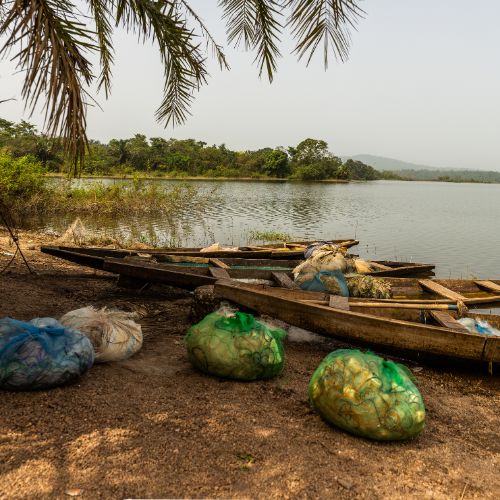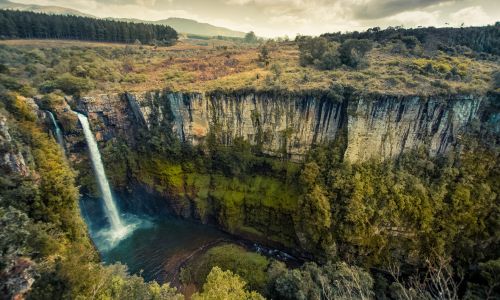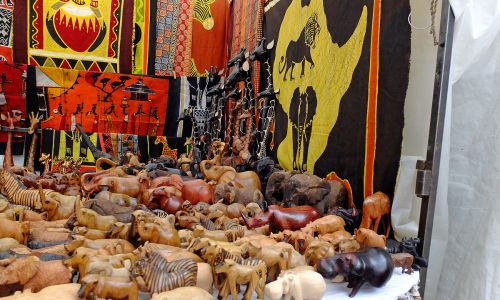Nigeria is one of those destinations that refuses to fit neatly into a single travel season. With its cultural festivals, natural beauty, and bustling cities, the country offers memorable experiences year-round.
When travel agents help clients decide when to plan their journey, they ensure the experience matches their expectations. This seasonal guide on when you should go to Nigeria gives you the framework to recommend the perfect itinerary, whether your clients want to celebrate with locals, explore nature, or enjoy the country’s warm hospitality.
The Dry Season: Sun, Festivals, and Smooth Travels
From November through March, Nigeria enjoys its dry season. The skies clear up, humidity eases, and road travel feels far more pleasant than in the wetter months. Many travelers prefer this time because it offers reliability; fewer rain showers mean fewer logistical surprises. For agents, it’s the easiest season to create a travel plan that clients will love.
Cultural highlights abound during this stretch of the year. December bursts with energy as Christmas and New Year celebrations sweep through Lagos, Abuja, and every village in between.
Music, food, and dance dominate the streets, making it a joyful period for anyone who wants to immerse themselves in Nigerian culture. January continues the festivities with events like the Argungu Festival and the Calabar Carnival, which feel like full-scale parades on repeat.
For adventure seekers, the dry season keeps the roads to Yankari National Park and Aso Rock open and safe for travel, giving wildlife lovers and hikers their best chance at exploration. Even in bustling cities like Lagos, when seasonal rains ease, traffic becomes slightly more manageable.
Travel agents should note that as Nigeria grows more popular during the dry season, demand for hotels, flights, and local tours will surge. Encourage early bookings, or advise clients to shift toward February or March if they want the dry season’s perks without the holiday crowds.
The Wet Season: Rain, Renewal, and Fewer Crowds
April ushers in Nigeria’s rainy season, which typically lasts until October. Heavy downpours and occasional flooding define this period, particularly in the southern regions. At first glance, travelers might see the weather as a reason to avoid Nigeria, but the season offers unique advantages for those willing to explore.
Nature thrives in the rain. Nigeria’s countryside glows with fresh greenery, rivers surge with energy, and waterfalls like Erin Ijesha roar with dramatic force. For photographers or eco-tourists, these months deliver unmatched opportunities to capture striking landscapes. Clients who love birdwatching or lush scenery will find the rainy season rewarding.
Another advantage comes from the lower costs. Fewer travelers arrive when the skies open up, so hotels cut rates and airlines reduce fares. For travel agents, this season presents the perfect opportunity to create budget-friendly packages that cater to clients seeking adventure without breaking the bank.
The rains challenge logistics, though. Heavy storms wash out certain rural roads, and city traffic slows to a crawl under pounding showers. Airlines face more delays, and outdoor plans often need quick adjustments. Prepare clients for these realities, and they will embrace the rainy season’s unpredictability as part of the experience.

Regional Variations: A Country of Contrasts
Nigeria’s size ensures that the weather never behaves uniformly across its regions. What holds true in Lagos rarely mirrors conditions in Kano, and clients need advice that respects these differences.
The north, with its drier climate, often experiences hotter temperatures. While the rainy season reaches Kano and Kaduna, it strikes with less force than in the coastal south. For travelers drawn to the desert edge and cultural centers in the north, the heat can feel overwhelming from March to May, but the rains remain relatively brief.
By contrast, the coastal south—including Lagos and Port Harcourt—feels the full weight of tropical rainfall. April through July drench these regions, followed by a short August break before September brings heavy showers again. Travel agents planning beach holidays or coastal tours should guide clients who want to visit these locations toward the dry season.
The central highlands around Jos offer a cooler microclimate, which surprises many visitors. This plateau region stays comfortable even when heat waves sweep the north. Hikers and nature enthusiasts often favor this area in the hotter months.
Because of these contrasts, a single trip to Nigeria can deliver a varied blend of climates. Smart itineraries combine regions, letting clients enjoy both the dry, sun-soaked north and the lush, rain-washed south in one journey.
Cultural Calendar: Timing Trips Around Festivals
Weather matters, but Nigeria’s cultural calendar influences just as many travel decisions. Festivals, carnivals, and ceremonies run year-round, and when clients align their visits with these events, the experience becomes unforgettable. The top highlights include:
- Calabar Carnival (December): Many call it Africa’s biggest street party, filled with elaborate costumes, parades, and music.
- Argungu Fishing Festival (March): A four-day celebration in Kebbi State where thousands compete in traditional fishing contests.
- Osun-Osogbo Festival (August): UNESCO recognizes this festival in Osogbo as a cultural and religious treasure dedicated to the goddess Osun.
- New Yam Festivals (July–September): Celebrated across the southeast, these events mark the harvest with feasting, dance, and community gatherings.
These events showcase Nigeria’s cultural richness while also shaping travel logistics. Hotels sell out, transport becomes scarce, and demand spikes during these periods. Agents should advise clients to secure accommodations months in advance if their travel overlaps with major festivals.
At the same time, smaller local celebrations add unexpected charm. From weddings that spill into the streets to community dance events, travelers often stumble upon festivities in progress. Encourage your clients to stay open to spontaneous invitations; they may return with stories richer than any scheduled excursion might provide.

Practical Guidance for Travel Agents
Guiding clients through travel in Nigeria requires equal measures of optimism and realism. The country rewards open-minded travelers with rich experiences but also demands careful preparation. Seasonality, festivals, and regional contrasts shape each itinerary, and clear communication from the start ensures satisfied clients.
Prepare travelers for variation. A sunny Lagos morning can dissolve into a tropical downpour within hours, while Kano might remain cloudless and scorching. Encourage travelers to pack for both extremes so they stay comfortable throughout their journey.
Agents must also focus on transportation. Nigerian airports function efficiently, but the weather often delays domestic flights. Road travel improves dramatically in the dry season, while the wet months demand patience and flexibility. Recommend experienced drivers and reliable transport companies to keep clients safe and on schedule.
Additionally, agents must address health issues directly. The dry Harmattan winds of December and January coat the north with dust, which can strain breathing. The wet season brings mosquitoes in abundance, so malaria prophylaxis becomes essential. When agents explain these realities clearly, they demonstrate professionalism and care.
For travel agents, Nigeria represents both a challenge and an opportunity. Guiding clients through the calendar of weather and culture allows you to craft memorable journeys. This seasonal guide on when you should travel to Nigeria ultimately answers itself—any time works, as long as you match the season to your traveler’s spirit.




